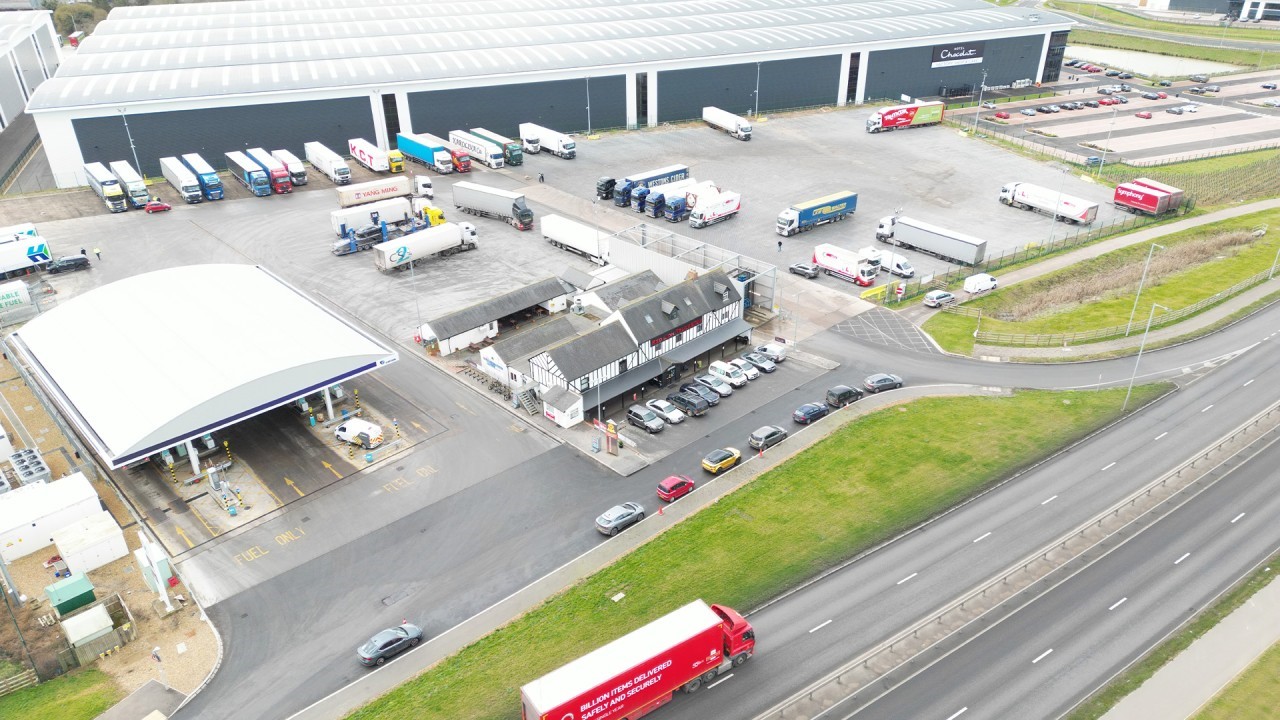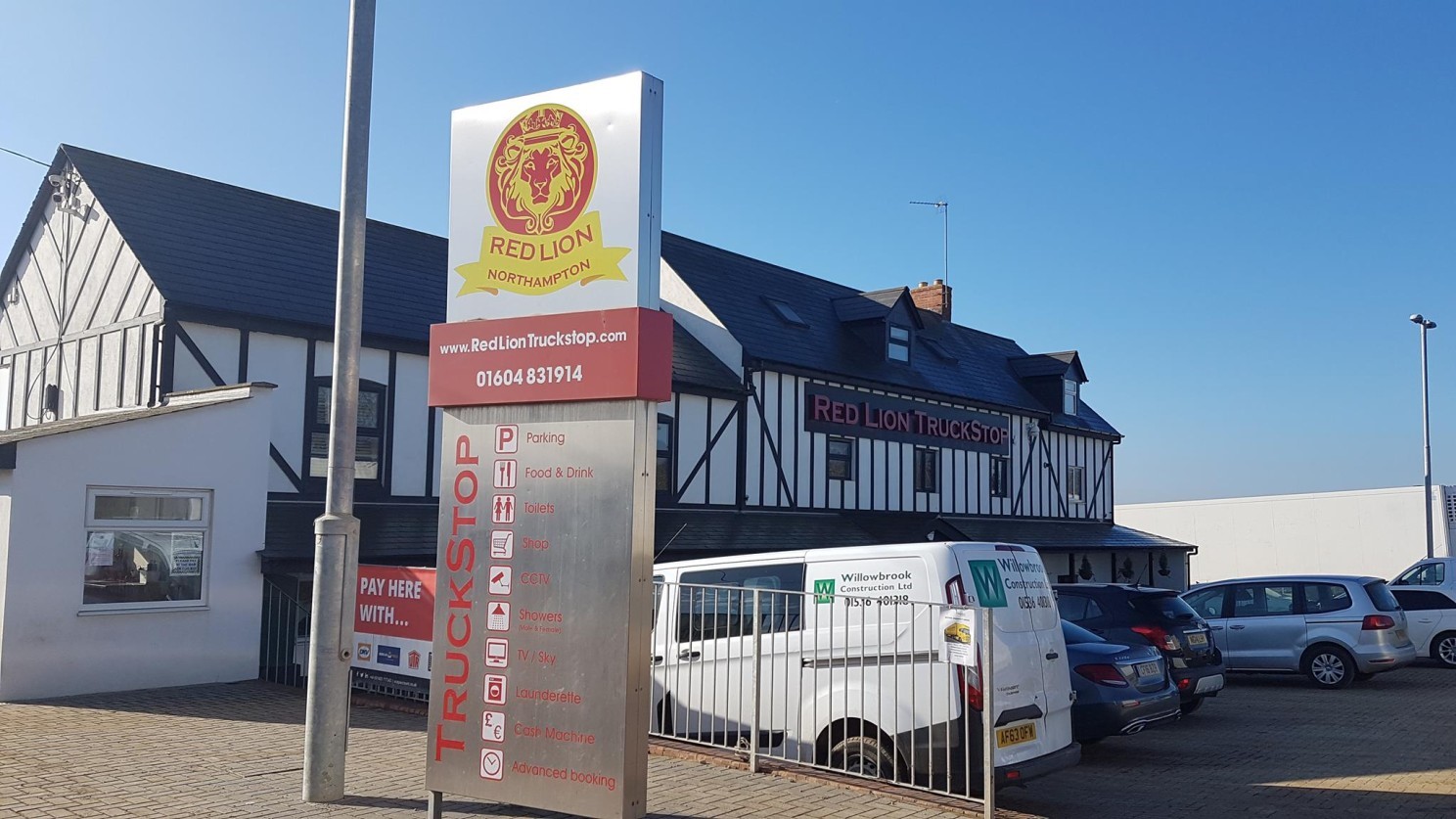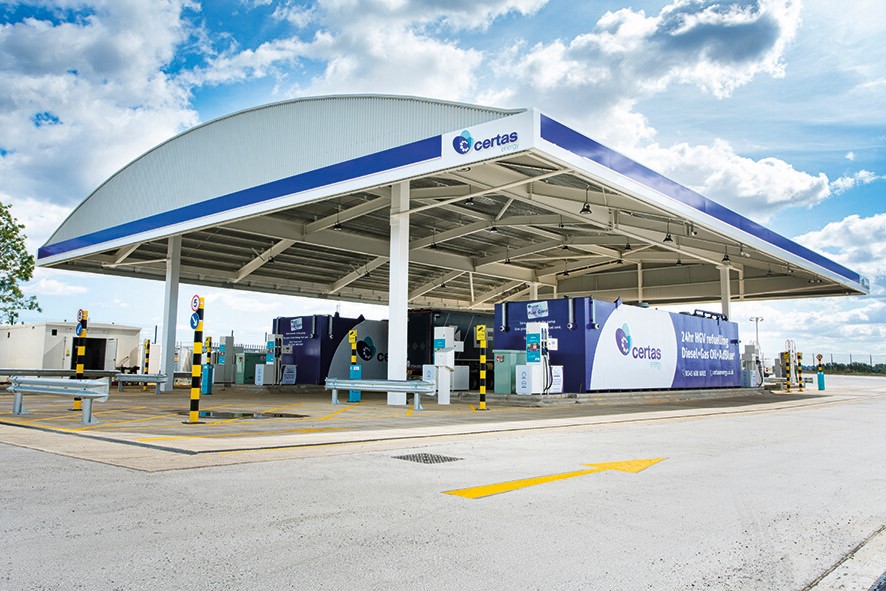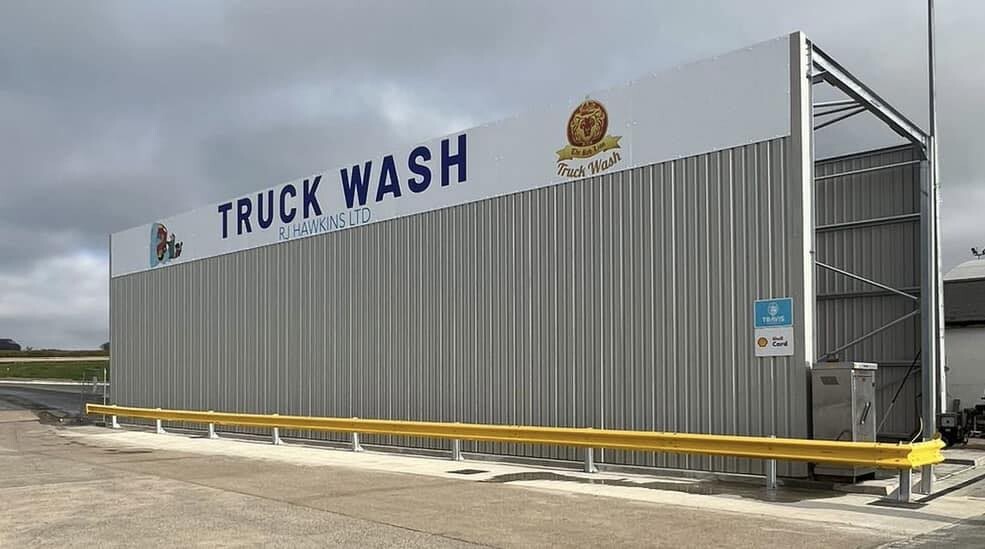
Susie Jones
Red Lion Truckstop - model sukcesu
Utworzony: 28.08.2024
•
Aktualizacja: 28.08.2024
Zaledwie 200 metrów od autostrady M1 na skrzyżowaniu 16 znajduje się postój dla ciężarówek Red Lion. Założony ponad 30 lat temu Red Lion stał się ulubionym miejscem kierowców. Opisywany jako raj dla kierowców ciężarówek, jego wspólna atmosfera, pyszne jedzenie i szeroki zakres udogodnień sprawiają, że ten wielokrotnie nagradzany przystanek jest zdecydowanym faworytem. Operator obiektu, Ali Sadrudin, opowiada nam o tym miejscu.
"Obiekt może pomieścić ponad 200 ciężarówek w ciągu nocy. Znajduje się tam szybka stacja paliw, która nie tylko dozuje olej napędowy i AdBlue, ale także sprężony gaz ziemny (CNG). Znajduje się tam również nowo wybudowana, obsługiwana przez 3 osoby myjnia szczotkowa. W budynku socjalnym znajduje się restauracja i bar, sklep z akcesoriami do samochodów ciężarowych, pralnia, centrum gier, bankomaty, prysznice i toalety, a także pomieszczenia funkcyjne i konferencyjne".

Udogodnienia
Niektórzy mogą postrzegać postoje ciężarówek jako miejsce odpoczynku dla kierowców, ale odgrywają one również kluczową rolę w poprawie samopoczucia kierowców. W SNAP wiemy, że zapewnienie kierowcom czystych obiektów jest niezbędne. Ale czego jeszcze potrzebują kierowcy ciężarówek?
"Wierzę, że klienci szukają podstaw, ale dobrze wykonanych. Dobrego jedzenia, czystych obiektów i bezpieczeństwa dla swoich pojazdów i ładunków. Jeśli możesz to zapewnić, będziesz mieć zadowolonych i stałych klientów" - mówi Ali.
Szybki rzut oka na stronę Red Lion na Facebooku mówi, że z pewnością podążają za tą mantrą i to działa. Komentarze takie jak "świetny postój dla ciężarówek, najlepszy w kraju" i "prawdopodobnie jeden z najlepszych postojów dla ciężarówek w Anglii" potwierdzają ponad 4000 pozytywnych recenzji w Google.
Bezpieczeństwo i ochrona
Jednak pyszne posiłki i czyste obiekty nie są jedynymi rzeczami, na których Ali i zespół się koncentrują. Bardzo poważnie podchodzą również do kwestii bezpieczeństwa. Szacuje się, że w 2020 r. w Wielkiej Brytanii doszło do ponad 4000 przestępstw związanych z samochodami ciężarowymi, ładunkami i ładunkami, co spowodowało koszt 250 milionów funtów dla Wielkiej Brytanii. Obiekty takie jak Red Lion wprowadziły środki bezpieczeństwa, aby zmniejszyć tę liczbę.
Ali twierdzi, że "SNAP pomógł nam uzyskać certyfikat TAPA PSR na poziomie 3". W lutym 2023 roku The Red Lion otrzymał nagrodę Park Mark Freight Award. Ali opowiada nam o środkach bezpieczeństwa podjętych w celu uzyskania tej nagrody.
"Obiekt jest bezpieczny z założenia. Mamy całodobowych strażników, którzy patrolują teren, a strona trzecia monitoruje CCTV. Mamy 3-metrowe nieprzerwane ogrodzenie wokół terenu, ze stałymi kamerami obserwującymi wszystkie jego punkty, dzięki czemu możemy wykryć wszelkie nieautoryzowane wejścia lub uszkodzenia paneli ogrodzeniowych. Teren jest również w pełni oświetlony do wymaganego przez policję poziomu natężenia światła, a kamery wykrywające ruch są strategicznie rozmieszczone wokół terenu, aby wychwycić każdy nieautoryzowany ruch i upewnić się, że każda część terenu jest pod obserwacją. System ANPR wychwytuje tablice wjeżdżające i wyjeżdżające z terenu, a w razie potrzeby można szybko skontaktować się z policją".
Red Lion podjął również dodatkowe środki, aby kobiety-kierowcy czuły się komfortowo i bezpiecznie podczas swoich wizyt. Dostępne są takie udogodnienia, jak damskie prysznice, toalety i przebieralnie. Środki te nie pozostały niezauważone, ponieważ w styczniu 2023 r. przystanek dla ciężarówek został uznany za najlepszy w Wielkiej Brytanii dla kobiet kierowców ciężarówek.

Przychody i ekspansja
Jedną z wielu korzyści dla menedżerów lokalizacji korzystających z SNAP jest poprawa rentowności i optymalizacja. Jako założyciel SNAP, Ali wyjaśnia, w jaki sposób SNAP przyniósł firmie dodatkowe przychody od momentu dołączenia w 2009 roku.
"Był to stopniowy proces na przestrzeni lat, jednak ponieważ nawyki kierowców w zakresie wydatków stale się zmieniają i stają się bezgotówkowe, mogę sobie wyobrazić, że nowa witryna przyjmująca SNAP przyniosłaby natychmiastowy zwrot. Około 65% całkowitych przychodów witryny pochodzi z SNAP".
Od 2009 roku w branży zaszło wiele zmian. Ali wyjaśnia, w jaki sposób strona musiała dostosować się do zmieniającej się branży i zwiększonego popytu.
"Początkowo obiekt był w stanie pomieścić tylko 130 samochodów ciężarowych na noc, ale w 2018 roku obiekt został powiększony do ponad 200 miejsc, aby sprostać zwiększonemu zapotrzebowaniu" - mówi Ali. Dla kierowców i flot korzystających z SNAP, te 200 miejsc można łatwo zarezerwować.
Zaledwie cztery lata później zakład został rozbudowany o nową myjnię dla ciężarówek. Otwarta w listopadzie 2022 r. najnowocześniejsza myjnia z trzema szczotkami jest odpowiednia dla większości pojazdów LGV.

Dołączenie do SNAP jako partner serwisowy
Dołączenie do SNAP daje Twojej lokalizacji dostęp do 160 000 kierowców i 7 000 flot. Dla postojów ciężarówek, takich jak Red Lion, które nieustannie starają się oferować nowe inicjatywy i udogodnienia dla swoich klientów, SNAP daje taką możliwość.
"SNAP umożliwił witrynie zaoferowanie alternatywnej metody płatności, która może tylko przynieść korzyści klientom i przyciągnąć ich do witryny" - mówi Ali.
Korzyści z SNAP
Ponad 160 000 kierowców korzysta z konta SNAP. Dlatego tak ważne są wysokie standardy. Chociaż partnerzy akceptujący płatności SNAP Account są niezależnymi firmami, sprawdzamy każdą witrynę i upewniamy się, że spełniają nasze standardy. Ponadto nasz zespół sieciowy jest dostępny w razie potrzeby.
"SNAP zawsze wspierał nas od samego początku" - mówi Ali.
Zapytany o to, co jest dla nich najlepsze w SNAP, Ali stwierdza: "to poziom obsługi, który wykracza poza to, aby dostosować system biletowy do naszych wymagań".
A jego rada dla właścicieli parkingów dla ciężarówek, którzy myślą o otwarciu swojej lokalizacji dla kierowców SNAP?
"Zrób to! Dlaczego miałbyś nie chcieć przyciągnąć dodatkowych klientów do swojej witryny?".
Zarejestruj się w SNAP
Aby zwiększyć rentowność i zoptymalizować działanie witryny, odwiedź stronę snapacc.com.


